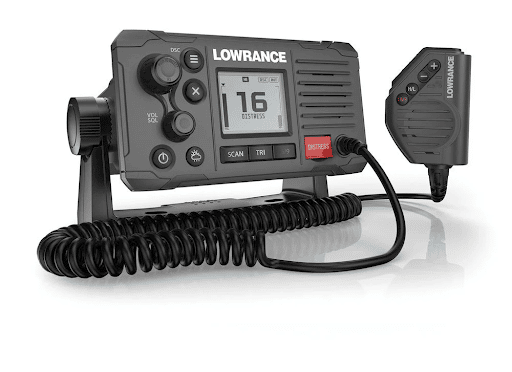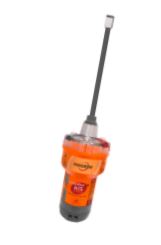Distress Signaling Equipment
There are many different ways to indicate the need for assistance.
VHF Marine Radio
 A Very High Frequency (VHF) marine radio is the best way of communicating between two or more vessels when on the water.
A Very High Frequency (VHF) marine radio is the best way of communicating between two or more vessels when on the water.
VHF is the preferred method of distress calling and is far superior to cell phones in seeking help in boating emergencies. When a Mayday is sent out via a VHF radio, it is broadcast to Coast Guard radio stations as well as any VHF-equipped boat within range. These other boat operators may be the first to render assistance.
All VHF marine radio operators must have a Restricted Operator Certificate Maritime (ROC-M). To obtain an ROC-M certificate, contact the Canadian Power and Sail Squadron (CPS).
The Canadian Power and Sail Squadrons (CPS) has been delegated by the Government of Canada to deliver VHF/ROC-M training and test services.
Digital Selective Calling (DSC)
Newer VHF radios usually come equipped with Digital Selective Calling (DSC) on Channel 70. The important safety feature of VHF radio equipped with DSC is that it allows a vessel in distress to transmit a rapid distress alert at the push of a button. When connected to a global positioning unit (GPS) receiver equipped with DSC, the distress alert will also send the coordinates of the vessel in distress. Channel 70 is only available on VHF-DCS equipped radios. DSC is part of the Global Maritime Distress and Safety System (GMDSS).
Global Positioning System (GPS)
While more and more boat operators rely on marine GPS to tell them where they are on the water, it is a good idea to keep charts on board in case of a GPS failure. The GPS is a worldwide radio-navigation system made possible by a network of satellites and\monitoring stations.
Emergency Position Indicating Radio Beacon (EPIRB)
 A distress signal can be sent by activating the alarm on an Emergency Position Indicating Radio Beacon. Once activated, EPIRBs send out an electronic distress signal with your position, which can be tracked by satellite and aircraft.
A distress signal can be sent by activating the alarm on an Emergency Position Indicating Radio Beacon. Once activated, EPIRBs send out an electronic distress signal with your position, which can be tracked by satellite and aircraft.
This signal is then relayed to rescue centers around the world. Not all vessels are required to carry an EPIRB, but you would be wise to carry one when operating on large open bodies of water.
EPIRBs need to be registered with the Canadian Beacon Registry at: www.cbr-rcb.ca

